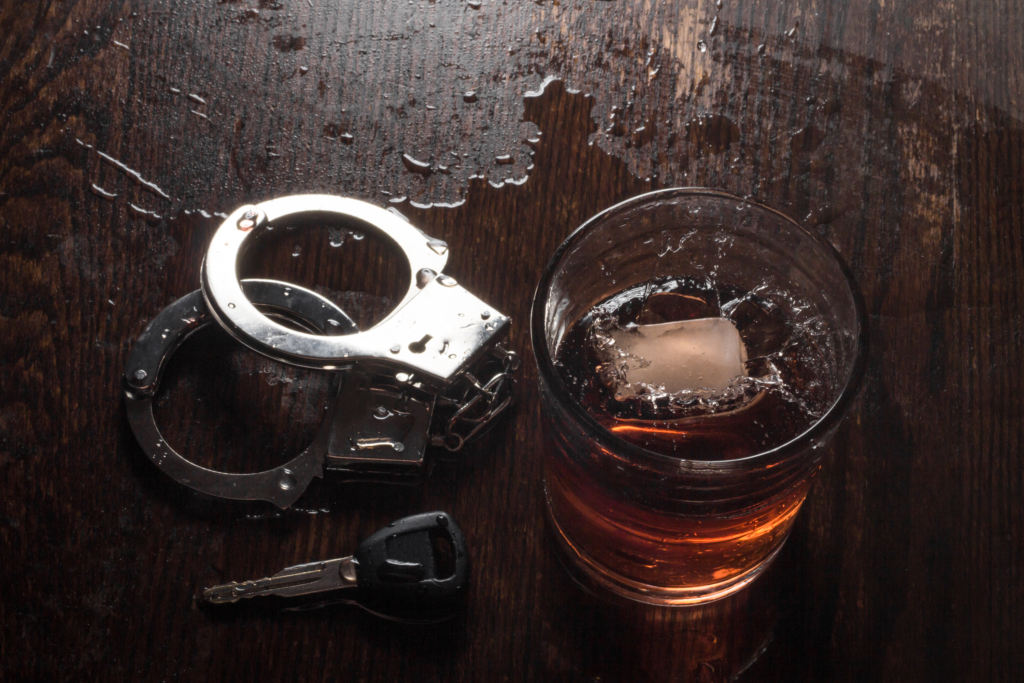Being charged with a DUI in Florida is instantly stressful. From worrying about your driver’s license and insurance rates to navigating court dates and potential career impacts, it’s natural to feel uncertain about the path ahead.
The steps you take right now are the most critical for protecting your rights and regaining control of the situation. Your first move should be to focus on the legal defense. At Morris Law Firm, our DUI attorneys are here to explain the critical 10-day deadline for your license hearing, analyze the details of your stop, arrest, and field sobriety tests, and develop a strong legal strategy focused on minimizing penalties and protecting your future.
Reach out to our dedicated DUI attorneys today to get started.
What Happens When You Get a DUI in Florida
When you are pulled over on suspicion of DUI in Florida, the process can be fast and confusing. Understanding what happens is the first step toward regaining control of the situation:
- The Stop and Investigation: The officer asks for your license and registration, observes your behavior, and may request you perform Field Sobriety Tests (FSTs).
- Chemical Testing: You may be asked to take a breath, blood, or urine test. If your Blood Alcohol Content (BAC) is 0.08% or higher, or if the officer determines you are impaired, you will likely be arrested.
- Arrest and Booking: You are formally arrested and transported to the station for booking, which involves fingerprinting and mugshots.
- Immediate License Suspension: Upon arrest, your driver's license can be immediately suspended. You will typically be given a temporary driving permit and a notice regarding your future court date.
- First Appearance and Arraignment: You will receive a notice about your upcoming court date, where you will formally enter a plea.
What happens next depends on many factors, including your prior record and the specific circumstances of your arrest.
Understanding DUI Charges in Florida
Getting a DUI in Florida isn’t just about how much you had to drink; it’s about whether your ability to drive safely was affected. Florida law covers not only alcohol, but also drugs and even prescription medications that can impair your reaction times or alter your focus.
Here are some of the main factors that can shape what your DUI charge looks like in Florida:
- Your BAC level: If your blood alcohol concentration is 0.08% or higher, the law considers you legally impaired, which forms the basis of most DUI charges.
- Age at the time of arrest: Drivers under 21 face much stricter limits, a BAC of just 0.02% can lead to a DUI citation and loss of driving privileges.
- Refusing a breath test: Saying no to a breath or chemical test can still lead to a license suspension, since Florida’s “implied consent” law treats refusal as a violation tied to your DUI case.
- Aggravating circumstances: A high BAC, injury-causing accident, or prior convictions can elevate your DUI to a more serious offense with tougher penalties.
- Prior history: Repeat DUI offenses can quickly turn into felony-level charges, with longer license suspensions, steeper fines, and mandatory jail time.
Penalties for DUI in Florida
The penalties for a DUI in Florida can vary widely depending on your situation. Florida’s laws are designed to discourage impaired driving through a combination of fines, license suspensions, community service, and even jail time.
Felony
A DUI becomes a felony when there are repeat offenses or serious injuries involved. These charges carry much harsher consequences and can affect your freedom, employment, and future opportunities. Penalties may include:
- Fines: From $2,000 to $5,000, depending on the circumstances.
- Jail or prison: Up to 5 years in state prison for a third DUI within 10 years or a DUI involving injury.
- License revocation: Minimum of 10 years, with possible permanent revocation.
- Probation and treatment: Mandatory substance abuse evaluation and treatment programs.
- Vehicle impoundment: At least 90 days.
Misdemeanor
Most first-time DUIs in Florida are charged as misdemeanors. Even though this is the least severe level, the penalties can still be significant and have long-term effects on your record and daily life. Penalties include:
- Fines: Between $500 and $1,000 for a first offense; up to $2,000 if your BAC is 0.15% or higher or if a minor was in the vehicle.
- Jail time: Up to 6 months (or up to 9 months with aggravating factors).
- License suspension: Between 6 months and 1 year.
- Vehicle impoundment: Minimum of 10 days.
Underage DUI
Florida has a zero-tolerance policy for drivers under 21, meaning even a small amount of alcohol can lead to serious penalties. These consequences can impact school, work, and future driving privileges. Underage DUI charges include:
- BAC limit: 0.02% or higher can trigger penalties.
- License suspension: 6 months for the first offense, 1 year for the second.
- Refusal to test: Results in an automatic 1-year suspension.
- Mandatory education: Substance abuse course and possible community service requirements.
- Future impact: A record of DUI can affect college admissions and insurance rates long after the suspension ends.
5 Steps to Take After a DUI Arrest
After a DUI arrest in Florida, knowing what to do next can make a big difference in how your case moves forward. Each step helps you stay organized, protect your rights, and prepare for what’s ahead.
- Contact a DUI attorney: A lawyer can explain your rights, explore possible defenses, and guide you through every part of the process.
- Request a DHSMV hearing: You have just 10 days after your arrest to request this hearing to prevent an automatic driver’s license suspension. Your attorney can take care of this on your behalf.
- Gather paperwork: Review every document you received from law enforcement; these will include your arraignment date, court information, and details about where your vehicle is being held.
- Secure your vehicle: Your car was likely impounded, so you’ll need to locate it, arrange for towing if needed, and pay any related fees to get it released.
- Prepare for court: Your arraignment is the first step in your court process. Your attorney can appear for you if appropriate and begin planning your legal strategy.
The 10-Day Rule
In Florida, the clock starts ticking the moment you’re charged with a DUI. You only have 10 days to take action to protect your driver’s license.
During this time, you must request a DHSMV (Department of Highway Safety and Motor Vehicles) hearing to challenge your automatic license suspension. If you miss this deadline, your driving privileges will be suspended, no exceptions.
This hearing gives you and your attorney the chance to argue for your right to drive while your case is pending, and in some cases, to request a hardship license that allows limited driving for work or essential needs.
How a Skilled DUI Lawyer Helps Your Case
A skilled DUI attorney helps you understand every step, protects your rights, and works to minimize the impact on your life. At Morris Law Firm, our DUI attorneys focus on guiding clients through each stage of your case while fighting to protect your driving privileges and future opportunities. Here’s how we help handle your DUI charge:
- DHSMV Hearings: Request and represent you in the 10-day hearing to protect your license.
- Court Representation: Prepare your case and appear at arraignments, pre-trial hearings, and trial if necessary.
- Investigation and Evidence Review: Examine police reports, sobriety tests, and other evidence to identify potential defenses.
- Negotiation with Prosecutors: Work to reduce charges or penalties where possible.
- Guidance on Consequences: Advise on fines, license suspensions, community service, and other penalties.
Take Action Now, Protect Your Rights
Even when you are facing a DUI charge, there is hope. The DUI attorneys at Morris Law Firm are dedicated defenders of your driving privileges, and we are committed to helping you through each of these steps after a DUI. Reach out today to start working with a team that will defend not only your rights, but your life and your future.
FAQs About DUI Arrests in Florida
How long do you stay in jail for a DUI in Florida?
The amount of time you could spend in jail depends on factors such as whether it’s your first offense, your BAC level, and whether there were aggravating circumstances like injury or property damage. For a first-time misdemeanor DUI, jail time can be up to 6 months, while felony DUIs or repeat offenses can result in years in state prison. A DUI attorney can help you understand what to expect based on your specific situation.
Is your license suspended immediately after a DUI in Florida?
Not always, but Florida law triggers an automatic license suspension if you fail or refuse a breath, blood, or urine test. You have 10 days from your arrest to request a DHSMV hearing to challenge the suspension. Taking action within this window is critical to protecting your driving privileges while your case is pending.
How much does a DUI lawyer cost in Florida?
Attorney fees can vary depending on the complexity of your case, prior offenses, and the services provided. Most DUI attorneys in Florida offer flat fees for standard cases, while more complex cases may be billed hourly. Investing in experienced legal representation can help protect your license, minimize penalties, and provide peace of mind throughout the process.
Can you get a DUI with a prescription or over-the-counter medication?
Yes. Florida law considers impairment from alcohol, illegal drugs, prescription medications, or even over-the-counter drugs that affect your ability to drive safely. If your driving is impaired, you can be charged with a DUI even if your BAC is below 0.08%.
What happens if it’s my first DUI?
First-time DUI offenses are usually treated as misdemeanors but can still carry fines, license suspension, community service, and possible jail time. An attorney can help you explore options for minimizing penalties and, in some cases, seek diversion programs or alternative sentencing.
How long does a DUI stay on your record?
In Florida, a DUI stays on your criminal record permanently. But for many purposes, such as insurance, it may impact rates for up to 10 years. A lawyer can advise you on how to address your record and potential options for reducing long-term consequences.
Do police have to read me my rights after a DUI arrest?
Yes, law enforcement must read you your Miranda rights if you are taken into custody and questioned about the incident. These rights include the right to remain silent and the right to an attorney. Knowing your rights helps protect you during the arrest and any subsequent questioning.
Can the police use force during a DUI arrest?
Police are allowed to use reasonable force to safely take you into custody, but excessive force is not permitted. If you believe force was used improperly, your attorney can review the circumstances and determine whether it could affect your case.


